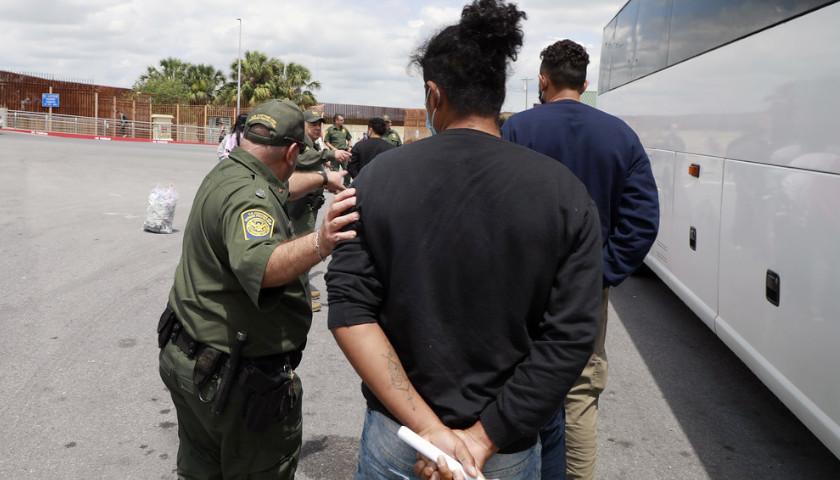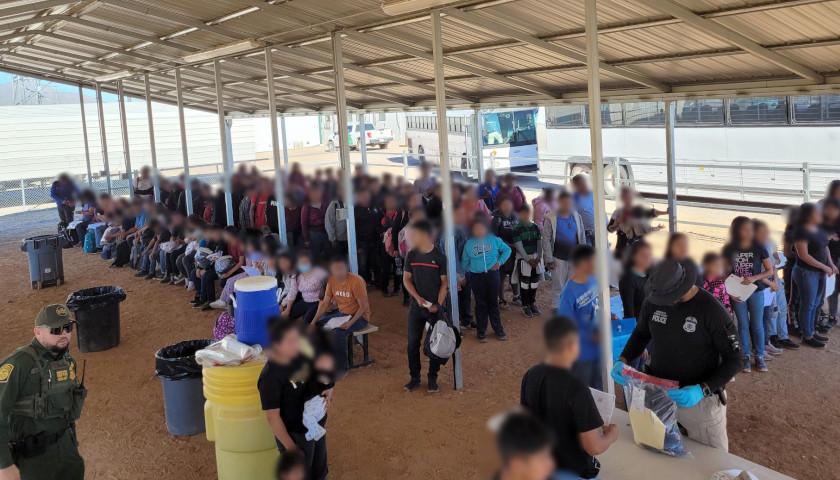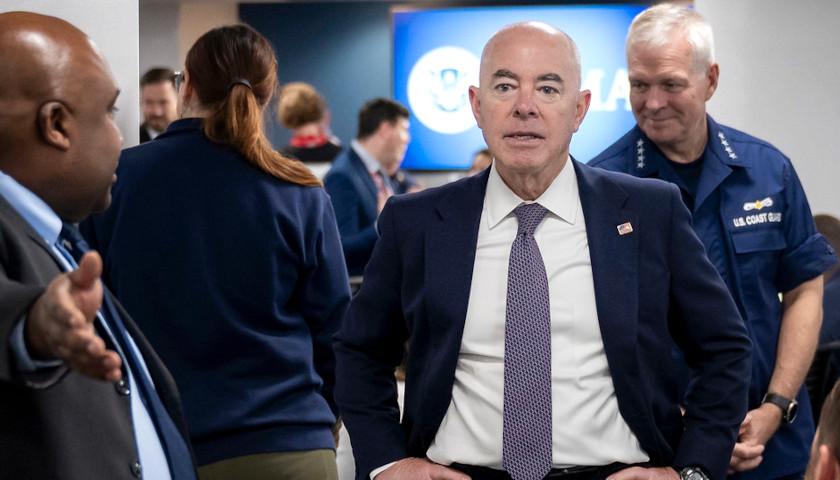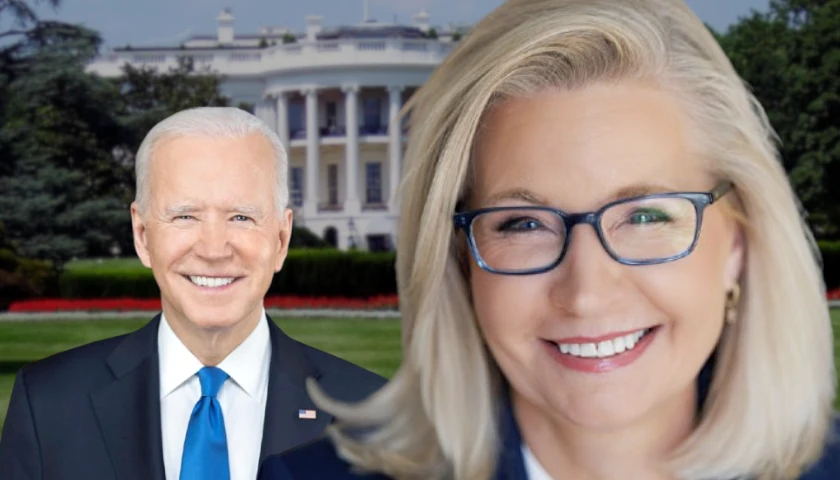by Bethany Blankley
As part of making their case to impeach U.S. Department of Homeland Security Secretary Alejandro Mayorkas, House Committee on Homeland Security Republicans identified more than a dozen parole programs they argue Mayorkas illegally created to circumvent laws established by Congress.
Texas, Florida and other states have sued over many of the programs that have allowed illegal border crossers to remain in the U.S., agreeing with the committee’s chairman, U.S. Rep. Mark Green, R-Tenn., who is leading the charge for impeachment.
Mayorkas argues he is justified to create new parole programs based on laws Congress established. In Federal Register entries describing the parole programs, DHS argues the Immigration and Nationality Act gives him “discretionary authority to parole noncitizens into the United States temporarily” under “reasonable conditions … on a case-by-case basis … for urgent humanitarian reasons or significant public benefit.’’ He also argues federal law authorizes him to establish and administer rules, including those governing parole.

“Parole is not an admission of the individual to the United States, and a parolee remains an ‘applicant for admission’ during the period of parole in the United States,” DHS contends, adding, it “may set the duration of the parole based on the purpose for granting the parole request, and may impose reasonable conditions on parole.”
DHS also says it “may terminate parole in its discretion at any time” and those “who are paroled into the United States generally may apply for employment authorization.”
The committee shared the parole programs it argues are illegal with The Center Square:
The Central American Minors Parole Program, which DHS implemented April 11, 2022. CAM provides certain minors from Honduras, El Salvador and Guatemala who illegally entered the U.S. to secure “protected status,” preventing them from being deported and allowing them to petition the government to bring in extended family members, including adult caregivers. In response, Florida led a multistate coalition suing to stop it, arguing, “There is no authority in federal law for this sort of program.”
In April of last year, DHS announced enhancements to the CAM program, which the committee and the states that are suing also argue is illegal.
The Uniting for Ukraine Parole Process, which DHS implemented April 25, 2022, created a process for Ukrainian citizens to apply for advance authorization to travel to the U.S. for the purpose of seeking a discretionary grant of parole to be decided “at the port of entry, on a case-by-case basis.”
Mayorkas also created four nearly identical new parole programs through a Dec. 22, 2022, memo for Venezuelans (implemented Oct. 18, 2022), Cubans, Haitians, and Nicaraguans (implemented Jan. 6, 2023). He did so “to address the challenges posed by irregular migration,” he argued. Under current law established by Congress, few citizens from these countries are allowed to legally enter the U.S. on parole, the committee contends.
DHS said in Federal Register entries that the programs are part of a “long-term strategy – a shared endeavor with partner nations – focuses on addressing the root causes of migration, which are currently fueling unprecedented levels of irregular migration, and creating safe, orderly, and humane processes for migrants seeking protection throughout the region. This includes domestic efforts to expand immigration processing capacity and multinational collaboration to prosecute migrant smuggling and human-trafficking criminal organizations, as well as their facilitators, and money-laundering networks.”
In response to this program, Texas, leading a 20-state coalition, sued, arguing Mayorkas created “an illegal visa system.”

Last February, DHS proposed a “Circumvention of Lawful Pathways” rule change to alter the U.S. asylum law process. DHS argues the U.S. attorney general and DHS secretary “have long exercised discretion, now expressly authorized by Congress, to create new rules governing the granting of asylum” through the Refugee Act of 1980. The rule proposes new “pathways” for foreign nationals to enter the U.S. claiming asylum; under current law they would not likely qualify to receive asylum and be processed for removal.
Last May, DHS announced it established a new CBP-One App as part of its now final rule, “Circumvention of Lawful Pathways,” despite widespread opposition and another lawsuit filed by Texas. Texas sued to stop it, arguing, “The Biden Administration deliberately conceived of this phone app with the goal of illegally pre-approving more foreign aliens to enter the country and go where they please once they arrive.” Managing a phone app “does not meet even the lowest expectation of competency and runs afoul of the laws Congress passed to regulate immigration.”
On July 10, 2023, Mayorkas announced another new “Family Reunification Parole Process” for Salvadorans, Guatemalans, Hondurans, and Columbians even after a federal judge in Florida ruled more than once that the parole programs were illegal.
This program included opening regional processing centers for the first time in U.S. history outside of the United States, The Center Square first reported. The first processing centers, in Colombia and Guatemala, enable citizens there to make an appointment to meet with an immigration specialist to help them be processed before they ever arrive to the U.S. with the goal of applying to become a lawful permanent resident.
Florida Attorney General Ashley Moody has called on Congress more than once to impeach Mayorkas for “dereliction of duty,” arguing that despite court rulings in lawsuits she’s filed ordering the parole programs to be halted, Mayorkas expanded them.
Moody told congressional leaders earlier this month, “With every court battle we have won, and every fact we have revealed, to say he has been derelict in his duties is an understatement.” She and other AGs argue, “The United States House of Representatives has a duty and responsibility to the American people. Secretary Mayorkas must be impeached.”
– – –
Bethany Blankley is a contributor to The Center Square.





